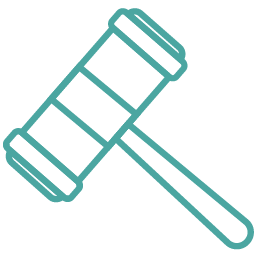Fabia II (2009-2015), Karoq (2012-2020), Kodiaq (2012-2020), Octavia (2009-2020), Rapid (2009-2020), Roomster (2009-2015), Superb (2009-2020), Yeti (2009-2015)
This list may be updated as the investigations by the Foundation are still ongoing.
Specifically, Audi, Porsche, SEAT, Skoda and Volkswagen diesel drivers may be eligible to claim if their vehicle is a:
In order to join, it is not necessary that you still own or lease your car.
Car Information

Globally, from 2009 to 2015, Volkswagen installed its “defeat device software” in over 11 million cars with engine type EA 189. Volkswagen has falsely promoted, and is still falsely promoting, a “clean diesel” image and as a result, has commanded a premium for its vehicles. In the United States, the Environmental Protection Agency determined that NOx emissions were up to 40 times higher when manipulated vehicles were not in test mode. Volkswagen themselves admitted that the level of NOx emissions in these different modes was “noticeable”. This unethical behaviour misled the authorities and let car companies portray their cars as cleaner and more efficient than they actually were.
Apart from affecting your wallet, this may have had a negative impact on your health and the environment. With its unethical conduct, VW has engaged in consumer fraud. It must be held accountable.
Volkswagen’s response in the United States
Volkswagen’s software in its EA 189 engines impacted 500,000 cars in the United States. Volkswagen has admitted fault in America. It has agreed to pay over $25 billion USD in compensation to owners, dealers, regulators and states.
Volkswagen’s response in Europe
In 2015, it was revealed that Volkswagen intentionally cheated the Euro 5 standards by employing defeat device software so their vehicles with EA 189 engines would appear to pass emissions tests. Recently, it transpired that Volkswagen has also cheated, and is still cheating, the Euro 6 standards. This includes Porsche and Audi vehicles equipped with EA 897 diesel engines and many VW vehicles equipped with engine type EA 288 (successor of the EA 189 engine). Therefore, the DEJF has expanded the scope of our claim and opened up registration for drivers of Volkswagen-cars equipped with EA 288 and EA 897 engines as well. The developments around EA 288 and EA 897 are being called Dieselgate 2.0 in Germany. This shows that the case is far from over.
While there are no differences in the defective vehicles sold in America and Europe, Volkswagen has refused to accept responsibility for the harm it has caused European consumers.
No meaningful compensation has been offered to European Volkswagen-owners, regardless of whether they drove a vehicle with engine types EA 189, EA288 or EA 897.
Case study: The Netherlands
In the Netherlands the number of affected cars is at least 170,000. The Netherlands Authority for Consumers & Markets determined in its decisions of 28 November 2017 and 4 December 2018 regarding cars with EA 189 engines that this manipulation was intentional, systemic and that Volkswagen AG had engaged in unfair commercial practices. Volkswagen remained silent and even continued to sell large numbers of affected vehicles with engine types EA 288 and EA 897.
What we’re doing
As a large international corporation, Volkswagen relies on the fact that a single person does not have the resources to challenge their wrongful conduct. Unlike the USA, legislation for collective redress in Europe has been fragmented until now, causing Volkswagen to benefit from lack of coordinated litigation in Europe. Now, with the WAMCA-legislation in the Netherlands, the DEJF is able to represent all affected Europeans for the corporate wrongdoing of Volkswagen and related parties.
In March 2020, the DEJF filed a writ alleging that Volkswagen AG intentionally and systemically manipulated at least 8.5 million European vehicles to pass emissions tests – 17 times more than in the United States, including cars manufactured by Volkswagen, Audi, SEAT, Škoda and Porsche.
Specifically, we allege VW installed defeat device software in over 11 million cars worldwide with engine type EA 189, EA 288 and EA 897 since 2009.
CURRENT STATUS
On August 13, 2024, the Amsterdam Court of Appeal ruled on the issues of jurisdiction and on the applicability of the WAMCA. The Court ruled that it has jurisdiction over injured parties who bought or leased their car in the Netherlands. The Court also ruled that the WAMCA applies to Euro 6 vehicles and the old class action law to Euro 5 vehicles. The court referred the proceedings back to the Amsterdam District Court. Oral proceedings are expected in the second half of 2025.
PROCEEDINGS AGAINST VOLKSWAGEN
Proceedings in Belgium
Proceedings in France
Your VIN is a 17-character ID and is located on your Registration, Insurance card and Title documents. Please note, you will need one of these documents to complete your registration as a claimant.
Your privacy and our use of cookies
The Diesel Emissions Justice Foundation (Stichting Diesel Emissions Justice) makes use of cookies and comparable techniques necessary for the correct functioning of our website. We also make use of analytical and affiliate cookies with limited or no impact on your privacy to improve the quality of our website. With your consent, we also use tracking cookies and social media cookies so that we and third parties can tailor advertisements and other content to your interests. Read more about cookies in our privacy statement.
Read more about cookies in our privacy statement.
Please select the country/region and language below
